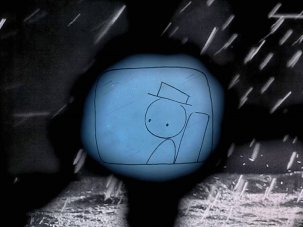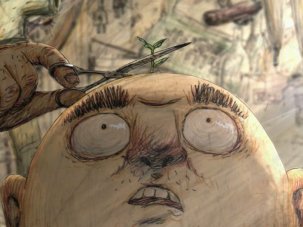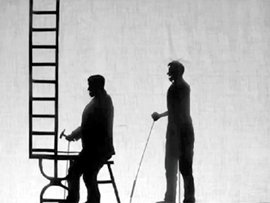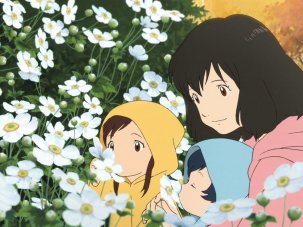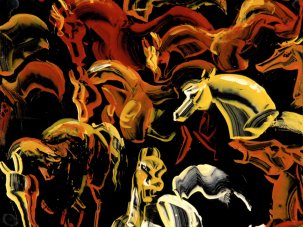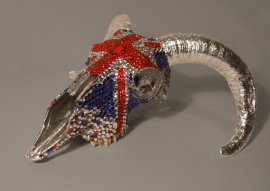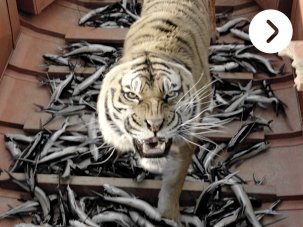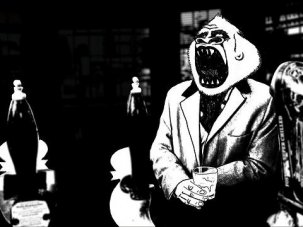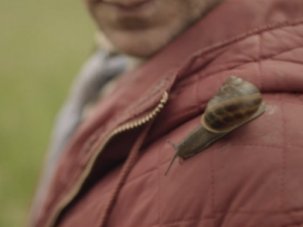Web exclusive
Sometime in June I was in the midst of screening 2,000 submissions to the Ottawa International Animation Festival. Up popped an undergraduate film called Another. The running time says 17 minutes. “Sweet fuck,” I thought. At least this will be quick and relatively painless, ’cause 299 times out of 300 they stink. If you’re making a 17-minute film, it best be a masterpiece. If you’re a student making a 17-minute film, well, just don’t. Just stop right now.
The film starts. Surprisingly, it’s hand-drawn with coloured pencil. You don’t see that too often nowadays (though the director, Sean Buckelew, is a student of the fine Chicago animator Chris Sullivan). Visually I feel like I’m watching a lost student film from the 1980s.
I keep watching.
Next thing I know… the end credits are rolling.
What the hell just happened?
If Bresson’s donkey in Au Hasard Balthazar was a symbol of Christ-like suffering and cruelty, then Buckelew’s bear might be a stand-in for Cape Fear’s Max Cady, a cold, mean, psychotic killer – yet one who becomes accepted, loved and grieved for by the mother and son.
The narrative is so free flowing and straightforward it can be approached and interpreted in any number of ways. Is this a metaphor about domestic violence? Did this once gentle father turn into a cold, abusive beast? Do the boy and mother accept the bear into their existence out of desperation? Is it just a silly film about what it would be like if a bear lived in human marriage? Is the bear the actual victim, a prisoner of these strange, desperately lonely and grieving humans?
While the scenes are ordinary and uneventful – although they are funny at times (the paw-shaped door handle, the bear swatting the bedroom lamp off) – Buckelow’s elliptical narrative, tightly framed shots and use of music (notably Beethoven’s Piano Sonata No. 25) creates a mysterious and tense setting that leaves you on edge. We’re never really sure what the hell is going on, let alone what will happen next.
Death’s stench seeps through the pours of the cabin waiting to pounce. And we know it will because it always does. But what surprises here – and what makes Another such a rich, satisfying and unusual work – is not death itself, but life’s reaction to it.




